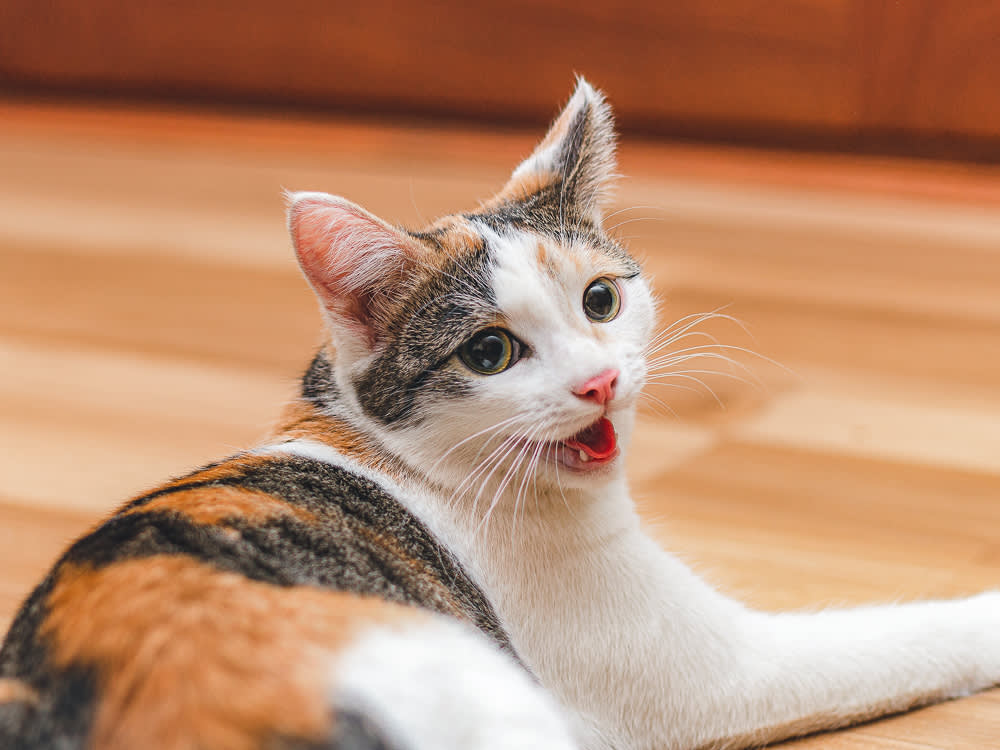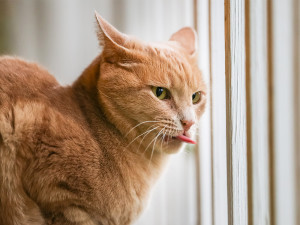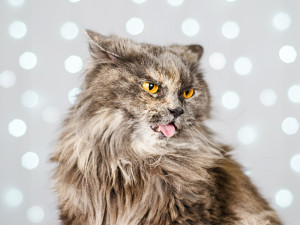Is My Cat...Panting?
“Cats don’t pant to cool off like dogs do.” Unless your pet is catching their breath after doing the zoomies, Dr. Gary Weitzman says it could be cause for concern.
Your cat’s mouth is open, tongue slightly out, and they’re taking short, shallow, audible breaths. They may even have their head hung low, as if they’re searching for better quality air to breathe. This, for a cat, qualifies as panting. There are a few instances in which panting isn’t a cause for much concern (like if they’ve just encountered an interesting scent), but in most cases, panting is your cat’s way of telling you that something’s really not ok. Here’s what you need to know.
Why Do Cats Pant?
“Cats don’t actively pant to cool off like dogs do,” said Dr. Gary Weitzman, DVM, CEO of the San Diego Humane Society, and author of National Geographic Complete Guide to Pet Health, Behavior, and Happiness: The Veterinarian's Approach to At-Home Animal Care (2019). “However, cats may pant for a short period of time when they have engaged in heavy play or other physical activity, if they are stressed, anxious, or overheating.”
1. Exercise and Overheating
It’s rare for a cat to run around so much that they lose their breath or overheat, but sometimes a cat might pant after an intense play session or a serious case of the zoomies. (Exercise-induced panting is generally seen in young cats, and is short-lived.) Very hot weather might also cause a cat to pant.
2. Stress, Fear, and Anxiety
Though rare, some cats react to extreme stress or fear by panting. You might see this when transporting your cat by car (especially to the veterinarian).
How much do you spend on your pet per year?
3. Illness
“Spontaneous, excessive panting and other symptoms are most likely tied to an underlying disease,” says Dr. Weitzman. “This type of panting can last a longer time, which should be a trigger to have your cat checked by a veterinarian.” Common medical issues that may cause panting include upper respiratory infections, asthma, tumors, diabetes, congestive heart disease, heartworm disease, and pain.
What Should I Do If My Cat Is Panting?
If you see your cat panting after heavy play or a stressful encounter, and it goes away after a few minutes, it’s probably not a big deal. And if something is upsetting your cat, you can try to remove them from the situation and see if it improves. Likewise, if your cat’s panting because they’re too hot, Dr. Weitzman advises bringing them to a cool place with air conditioning or a fan, and offering plenty of cool water.
The panting that you should really pay attention to is the kind that happens frequently and/or repeatedly. This could even be life-threatening — especially if your cat is panting loudly, if they’re wheezing or breathing very rapidly, or if you see their gums turn pale or blue. In that case, contact your vet right away. “Your veterinarian may take lifesaving measures right away, such as oxygen therapy, before conducting an exam with multiple tests, including a blood panel,” Dr. Weitzman says. “If the cat’s symptoms seem less severe, your vet will examine the cat and order tests.” Depending on the diagnosis, your cat may need fluids, antibiotics, an asthma inhaler, heartworm medication, or even surgery.
So, if your cat is panting, take it seriously. “It’s important to be vigilant, to ensure your cat’s panting doesn’t last more than a few minutes,” Dr. Weitzman said. “If it does, contact your veterinarian right away. It’s always better to err on the side of caution.”





